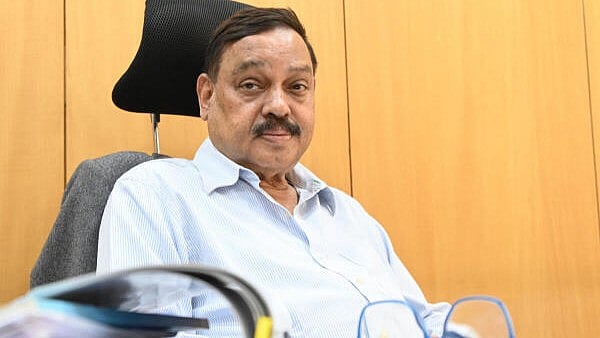
Madhusudan R Naik
Credit: DH Photo B K Janardhan
Bengaluru: The government has decided to set aside the politically sensitive social and educational survey (caste census) conducted by the Kantharaj commission for being 10 years old and has decided on a fresh exercise. In a chat with DH’s Sujay B M, commission’s chairperson Madhusudan R Naik speaks about the vision of the commission, the caste census proposed by the union government and the road ahead.
Last month Chief Minister Siddaramaiah announced that a new caste census will be conducted. How are things going?
The Kantharaj commission survey was one of the best in terms of quality and extensiveness. However, the government decided on a re-survey since the data was 10 years old. We want this new survey to be a model for the entire country. We are involving advisors to United Nations (UN), IIT-Bombay and so on. They have been shortlisted, we will invite them, interact with them and finalise the process.
Siddaramaiah says the new exercise can be finished within 3-4 months. How practical is this announcement?
The 90-day period starts after the government order (GO) is issued. Without waiting for it, we have already begun preparations. Since we already have the questionnaire of the Kantharaj commission, we just need to check whether it needs changes. We plan to be ready with the preparation by Dasara holidays, by when we think the GO will be issued. We are hopeful of finishing it within three months.
The central government has announced enumeration of castes along with the upcoming decadal census. Does this add pressure on the commission?
Survey and census are different. While a survey assesses the social and educational status of people, census is a counting exercise. As per Article 340 of the Constitution, even the Centre can investigate conditions of the socially and educationally backward classes. If they want to club the survey and the census, they have to amend the Census Act. However, when there’s a constitutional provision, why should they go through the backdoor method of including it in census? A central survey will take 3-4 years and is too long for the state to wait since policy decisions will depend on it. They (Centre) are doing this for political reasons.
The dominant communities slammed the previous survey as “unscientific”. How will you deal with it if you face a similar backlash?
We will appeal to political leaders and religious heads to guide people and ensure that this exercise is fruitful since it benefits the society at large. If we can achieve transparency and accuracy, the society will accept it by and large, even if some politicians still criticise it. Then, the government can proceed based on this report.
The SCs’ survey overseen by the Justice Nagamohan Das commission has just concluded. Since the data is fresh, can the BC commission approach them for some details?
Since the Nagamohan Das commission has conducted a statewide survey of SCs, where the methodology and questionnaire have some similarities, we are considering approaching them for some data. However, these discussions are in the preliminary stage and no decision has yet been taken. Our survey will incorporate some aspects from the Das commission, such as having a digitalised enumeration mechanism, which makes our task easier.
It’s a well-established principle of social justice that backward communities cannot get their due if forward communities continue to get reservation benefits. Till now, backward classes’ list has only seen additions, but no forward community has been kept out. Can we expect such a landmark decision from you?
There are certain political compulsions. According to me, the government can still continue extending its hand to the deserving amongst dominant communities. There are several sub-sects which deserve government support. The dominant communities should realise that this exercise helps the underprivileged in their communities.
For both the Kantharaj and the Nagamohan Das surveys, the Achilles Heel has been the enumeration in Bengaluru city. For instance, gated communities don’t allow enumerators. How will you tackle this?
The problem was with enumerators. You don’t get many teachers to be appointed as enumerators in an urban area like Bengaluru. So, they had to necessarily fall back on revenue and BBMP authorities. That lowered the sanctity of the enumeration. People too weren’t very cooperative. We have to educate enumerators properly. The commission itself will supervise the survey.
How many castes have sought inclusion under OBC list?
There have been at least 50 representations from different communities. This includes those seeking inclusion, those unable to get caste certificates owing to misspellings and so on. However, we have temporarily kept that process on hold, since we need the survey numbers to proceed on that front.
Quote:
"We will appeal to political leaders and religious heads to guide people and ensure that this exercise is fruitful since it benefits the society at large. If we can achieve transparency and accuracy the society will accept it by and large even if some politicians still criticise it."
— Madhusudan R Naik, Chairperson Kantharaj commission